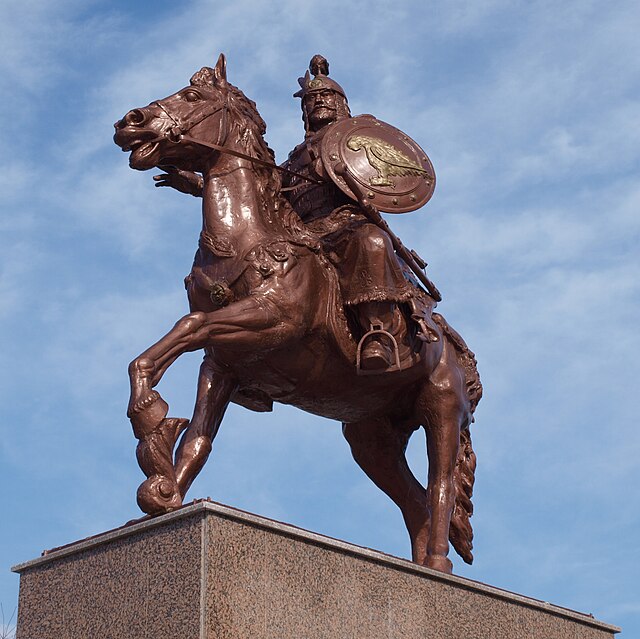The history of Bulgaria can be traced from the first settlements on the lands of modern Bulgaria to its formation as a nation-state, and includes the history of the Bulgarian people and their origin. The earliest evidence of hominid occupation discovered in what is today Bulgaria date from at least 1.4 million years ago. Around 5000 BC, a sophisticated civilization already existed which produced some of the first pottery, jewellery and golden artifacts in the world. After 3000 BC, the Thracians appeared on the Balkan Peninsula. In the late 6th century BC, parts of what is nowadays Bulgaria, in particular the eastern region of the country, came under the Persian Achaemenid Empire. In the 470s BC, the Thracians formed the powerful Odrysian Kingdom which lasted until 46 BC, when it was finally conquered by the Roman Empire. During the centuries, some Thracian tribes fell under ancient Macedonian and Hellenistic, and also Celtic domination. This mixture of ancient peoples was assimilated by the Slavs, who permanently settled on the peninsula after 500 AD.

Magura cave drawings
Varna culture burial, 4500 BC (reconstruction)
Valchitran Treasure, c. 1300 BC
Thracian Tomb of Kazanlak, 4th century BC
Asparuh was а ruler of Bulgars in the second half of the 7th century and is credited with the establishment of the First Bulgarian Empire in 681.
Monument in Strelcha, Bulgaria





